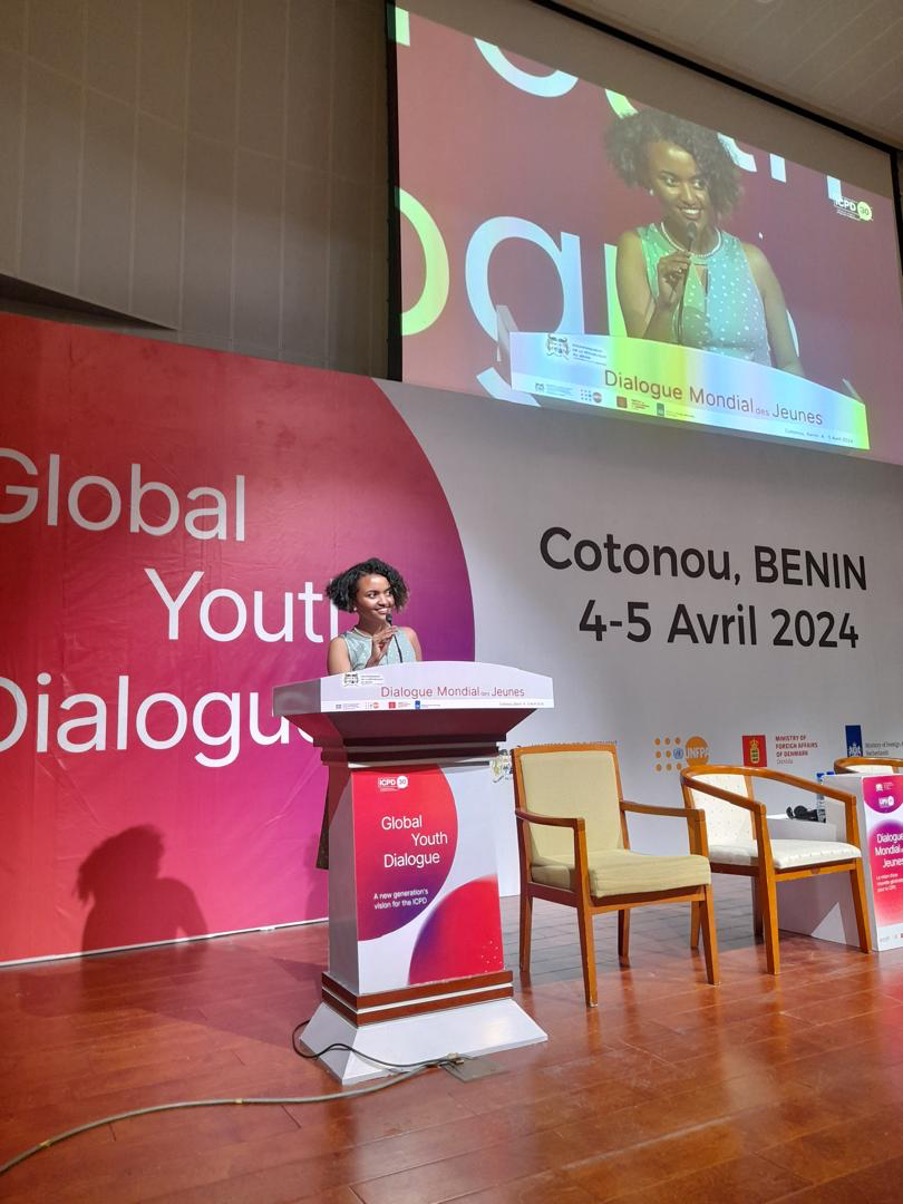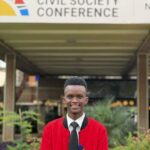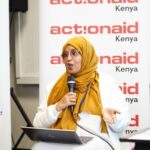My name is Hanna Kumera, a passionate advocate for youth empowerment and social change. Born and raised in a beautiful town named Bahir Dar in Ethiopia, my journey in advocacy began early, as a young 11-year-old girl founding the 1st girls’ club in my elementary school Atse Sertse Dingil Primary School. I started a spark, raising awareness about adolescent empowerment, life skills, and sexual and reproductive health.
I got introduced to the Orchid Project and The Girl Generation: Support to the Africa-Led Movement to end Female Genital Mutilation (TGG: ALM) at the Women Deliver 2023 conference in Kigali, Rwanda. I was at the conference as the chairperson of the Amref Youth Council in Ethiopia and I had the opportunity to represent Amref Health Africa’s Power to Youth project and The Girl Generation ALM on ending Female Genital Mutilation/Cutting (FGM/C).
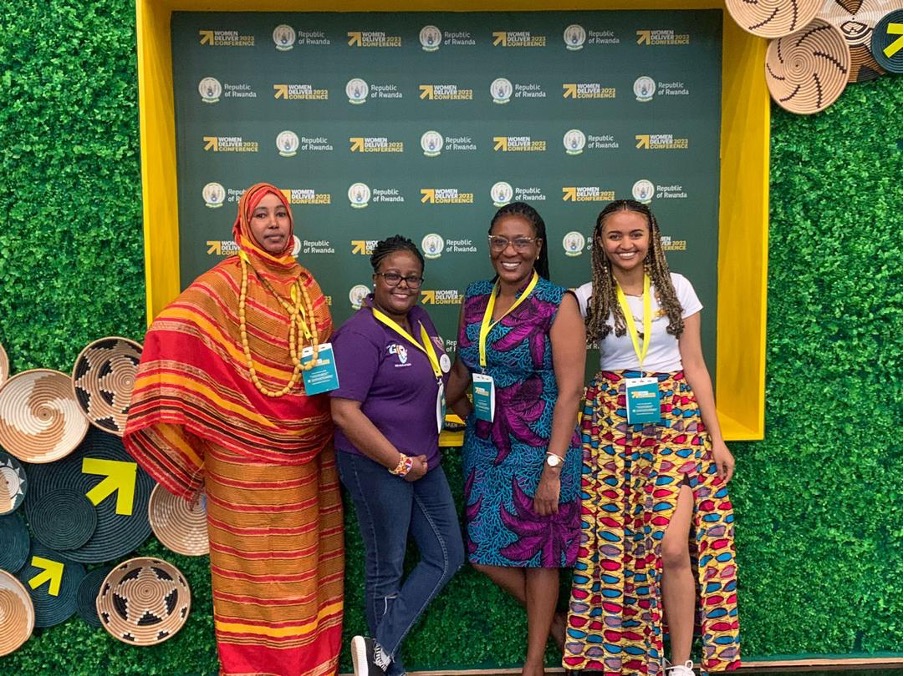
Between September 2023 and November 2023, I participated in 4 virtual workshops organized by Orchid Project as part of the Girl Generation ALM programme for young female advocates like me. In the workshops, we discussed the recommendations given by young advocates from the online Youth Forum organized by Orchid Project on 23-24th August 2022 on behalf of the Africa Led Movement, to End FGM/C. The forum brought together over 70 young people from East and West Africa, as well as South Africa and Asia.
We designed our global youth advocacy toolkit and ensured that the global youth advocacy toolkit that we co-created together at the end of our engagement is representative of our learnings and experiences in the advocacy work that we are already undertaking in our different capacities including preparations for the ICPD30 conference in Cotonou, Benin.
Participating in the development of the global youth advocacy toolkit not only sharpened my advocacy, campaign design, content creation and toolkit designing skills but also amplified my visibility within the Sexual Reproductive and Health Rights (SRHR) and gender advocacy community. This practical experience made me join the UNFPA Joint Youth Working Group as SRHR and Gender advocate. As part of the group, I shared my knowledge and experience with other young people in Ethiopia, West Africa, Asia and the Middle East. Following this I co-organized 5 virtual dialogues for the young people living in and around Addis Ababa focusing on setting SMART goals, researching thoroughly, developing key messages, creating advocacy materials, identifying target audiences and delivering.
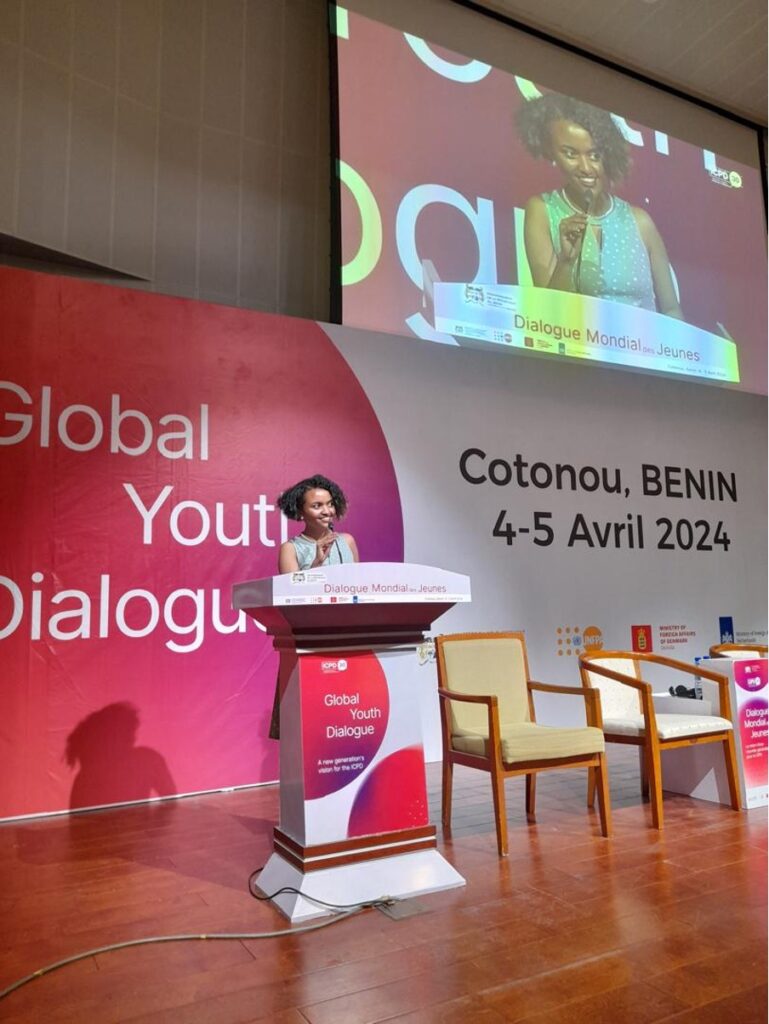
Since participating in these workshops, I have actively applied my newfound knowledge in various contexts. I have engaged with rural communities in Ethiopia, facilitating dialogues with elders and parents to challenge harmful misconceptions about FGM/C. Additionally, I have organized empowering workshops for young people enabling them to lead anti-FGM/C efforts within their own communities. On a broader scale, I have shared the realities of FGM/C in Ethiopia on international platforms such as amplifying the voices of those affected and drawing global attention to this pressing issue.
I’ve also been at the forefront of the movement in collaboration with local CSOs such as Women & Girls Support Ethiopia in regions like Afar and Somali. We’ve challenged harmful traditions, empowered communities, and advocated for policy change. By organizing awareness campaigns, training community health workers, and engaging with traditional leaders, we’ve made significant strides in reducing the prevalence of FGM/C. Our collective efforts have not only saved countless girls from this harmful practice but have also fostered a more just and equitable society.
One significant success was a community dialogue on the prevention of FGM/C that brought together young people, policy makers, elders, religious leaders, community leaders, teachers and delegates from the Ministry of Health, The Ministry of Women and Social Affairs, adolescents, and journalists. The policymakers, elders, religious leaders & journalists publicly condemned and abandoned FGM/C. This outcome, achieved through inclusive, intergenerational, trust-building, and respectful dialogue, affirmed the power of localized advocacy.
The Importance of Youth Engagement in Ending FGM/C
Young people are uniquely positioned to lead the movement against FGM/C. Our ability to connect with our peers, challenge social and gender norms, bring innovative solutions and change the narratives makes youth advocacy crucial in fighting against FGM/C.
Based on my experiences and unique insight as a youth advocate working to end FGM/C, I believe the following strategies are essential for progress:
- Advocacy has been a journey of learning and growth for me, made possible through training, resources, and opportunities like the Youth Advocacy Toolkit. Capacity-building workshops have provided me with essential skills, and I encourage organizations CSOs, NGOs, and government institutions to offer young advocates more chances to learn and grow.
- Creating safe spaces where youth can share their ideas without fear of judgment is equally important. For instance, Orchid Project provided a supportive platform that allowed us to voice our concerns freely, which made a huge difference in building our confidence.
- Inclusion in decision-making processes, especially at policy levels and global forums, is an area where progress is still needed. Youth voices must be part of the conversation to ensure policies truly reflect diverse perspectives.
- Another game changer, financial support and mentorship can further strengthen youth-led initiatives. As someone working to end FGM/C through advocacy, I know the impact even small resources can have. With proper funding and guidance, our efforts could go even further.
- Through intergenerational effort, we can create a brighter future by investing in young advocates. By providing them with the necessary tools and support they need, we can empower them to challenge harmful practices like FGM/C and build a world where every girl is free to reach her full potential.
- Finally, recognizing the achievements of young advocates can motivate others to join the cause. Awards, certifications, or simple acknowledgments can inspire us to keep pushing forward. Together, we can create meaningful change in the fight against FGM/C.

